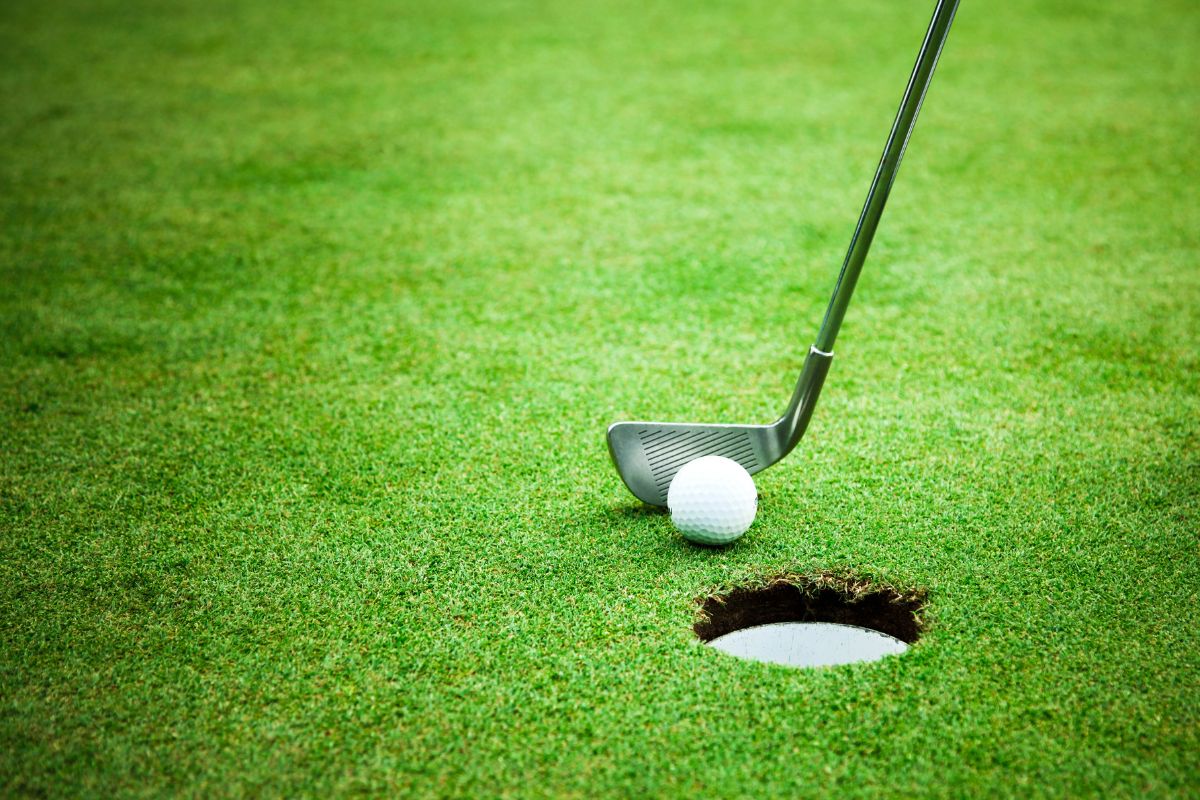When it comes to the equipment you can legally use in competitive golf, the rules can be somewhat confusing. Some clubs and accessories are legal in certain situations, but not others. Moreso, some equipment might be legal, but not recommended.

One type of golf club that raises a lot of questions regarding its legality is the chipper. Even golfers who have been interested in the game for years can still get confused about this particular club.
Read on to find out whether chippers are legal in golf, when to use one, and what the rules are for using a chipper on the course.
Golf Chippers: What Are They?
If you’re fairly new to golf, you might not know what a chipper is. Basically, a chipper is a type of golf club with a shorter-than-average shaft and a head shaped like a wedge(see also: What Is A Wedge?).
Chippers are used to leverage the golf ball upward on a shot where a putter would simply send the ball forward.
Why Use A Chipper For Golf?
Since the purpose of a chipper in golf is to send the ball traveling on an upward trajectory, situations where you need to hit the ball upwards are the best time to use a chipper. Rough grass or grass that isn’t too long is the perfect kind of terrain for using a chipper.
With that being said, if you want to maintain control over the spin of the ball, a chipper is definitely not the best tool to use. As you hit the ball upward, the spin becomes out of your control, and this can cause problems if you want to hit the ball over a long distance, for example.
Are Chippers Legal In Golf Competitions?
So, we now know what chippers are and why you might want to use one when playing golf. But here’s the real question: are chippers legal in competitive golf?
The short answer to this is yes, generally speaking, chippers can be used legally in golf tournaments and competitions. With that being said, professional golfers don’t tend to use chippers in competitive play, and there’s a reason for that.
Chippers are not traditional golf clubs. They were created for the specific purpose of helping high-handicappers and mid-handicappers to improve their game.
Professional players should be able to maneuver the ball in an upward trajectory without the help of a chipper, and golfers who play professionally also probably don’t want to sacrifice their control over the ball’s spin.
Essentially, while there’s no rule against using chippers in competitive golf, most professional players don’t want to be seen using a chipper because it’s typically used by mid-to-high handicap players.
What About Double-Sided Chippers?
It’s important to note that until this point, we have been talking about single-sided chippers. However, you can also purchase double-sided chippers, also known as two-way chippers. These clubs have two faces instead of one, but they have the same short shaft and wedge shaped head.
Double-sided chippers are useful for ambidextrous players, or for use by players with different dominant hands since they can be held in either the left or right hand. These chippers are also great on courses where there are a lot of obstacles to maneuver around.

With that being said, if you like using double-sided chippers and are planning to enter into a golf competition or tournament, bear in mind that these clubs are not legal competitively.
The reason for this is that in order for a club to be legalized in golf competitions, its clubface must not exceed a loft of 10 degrees.
Single-sided chippers as well as putters have clubface lofts of less than 10 degrees, but because of the way the double-sided chippers are designed, they don’t meet the criteria.
Therefore, if you or a fellow player were found to be using a double-sided chipper during a competitive game, this would result in disqualification.
Using A Chipper: The Rules
While regular (not double-sided) chippers are legal in competitive golf, there are some rules surrounding their use that players must adhere to in order not to be disqualified. These rules have been outlined by the USGA, so they are set in stone unless further revisions to the rules take place.
Some of the rules you will be expected to follow if you use a chipper in a golf tournament or competition are as follows:
Although you can find chippers designed with longer handles, these are not legal in competitive golf. Only standard chippers with short shafts no longer than those of the 7-iron are allowed.
The chipper must be used with a chipper-specific grip. A putter grip may not be used with a chipper.
You can’t use any accessories to help you aim the chipper. The chipper itself already helps to correct a mid-to-high handicap, so using additional appendages would be considered cheating and result in the player being disqualified.
Finally, as we’ve already mentioned, while you can use a single-sided chipper in a competitive golf environment, you can’t use a double-sided chipper. The chipper can only have a single striking face and must have a loft less than or equal to 10 degrees.
To ensure that your chipper is appropriate for a golf competition, we recommend looking for the authentic ‘USGA Qualified’ stamp. This should be stamped on the chipper itself, not just on the packaging. To ensure authenticity, buy from reputable brands such as Intech Golf, Wilson, or True Ace.
Conclusion
A golf chipper is a type of club with a wedge-shaped head and a short shaft, designed to lift the ball into an upward trajectory.
These clubs were designed for players with a mid or high handicap because it can improve play, although the risk is that control over ball spin is lessened, so long-distance shots may be compromised,
While most professional golfers wouldn’t use chippers competitively, single-sided chippers are legal as long as they meet USGA standards. Double-sided chippers, however, are not legal in competitive golf because their clubfaces have more than a 10-degree loft.
- Can You Bring Your Own Clubs To Topgolf? - November 15, 2022
- How Wide Is A Golf Cart? - November 15, 2022
- How Long Does 9 Holes Of Golf Take? - November 15, 2022
